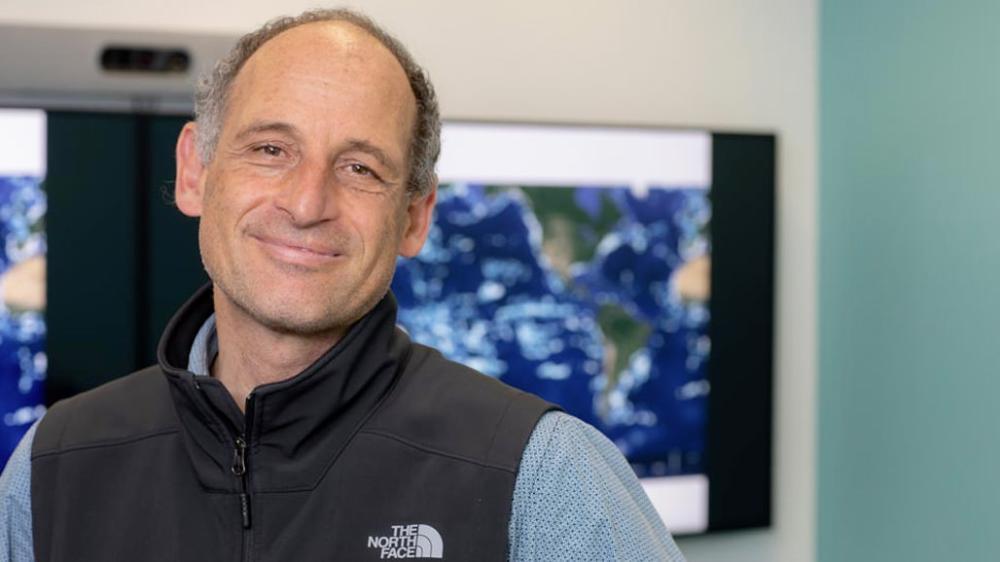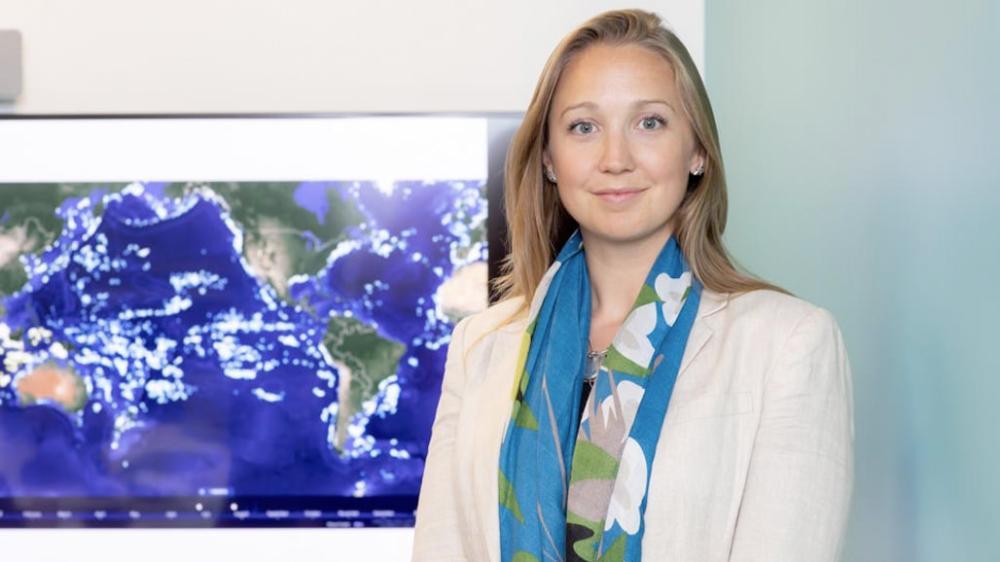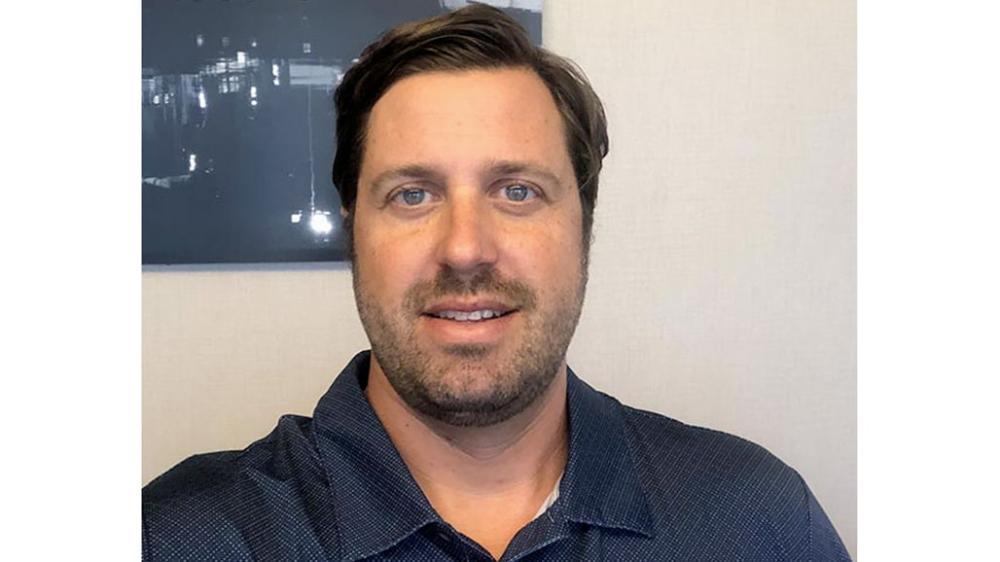Advocating for our oceans
The UOW research team dedicated to understanding our global marine environment
When you get to the ITAMS building and walk up the stairs, you reach a series of non-descript offices.
They are mostly empty because the academics who occupy them are likely to be scattered all over the world.
Dr Harriet Harden-Davies, for example, has just returned from New York, where she’s been helping to draw up a treaty at the United Nations to conserve marine life in international waters. She won’t be here for long. This year alone, she’s been a regular visitor to the UN, but has travelled the world hosting workshops and providing advice in Micronesia, Fiji, Ottawa, Boston, London and Malmo.
ANCORS Fisheries Governance program in Pacific Island Nations.
Mohamed Ahzan
The Australian National Centre for Ocean Resources and Security – better known as ANCORS – is an anomaly at the University of Wollongong. It’s arguably better known across the world in the field of marine governance and conservation, than it is in its home town.
It is Australia’s only multidisciplinary university-based centre dedicated to research, education and training on ocean law, maritime security and natural marine resource management.
“It’s a place about doing research and then engaging decisionmakers,” Dr Harden-Davies says.
“Our research becomes more relevant because we are involved with policy and decisions. I didn’t want to be in an ivory tower.”
She was attracted to ANCORS as a place to study for her doctorate precisely because it had one foot in academic research and another foot planted firmly in the practical implementation of one of the most pressing issues of our times – the rapid depletion of our oceans.
After an undergraduate degree in marine biology, she spent six years as manager of the science policy program at the Australian Academy of Technology and Engineering in Melbourne.
That her doctorate was technically in the field of law, speaks volumes about the kind of academic who finds a place at ANCORS.
They’re people like Quentin Hanich, Associate Professor and Fisheries Governance Program Leader.
The ANCORS Fisheries Governance Program studies how we manage human interaction with our marine environment, and develops innovative solutions to manage our activities and impacts.
Like Dr Harden-Davies, his background is a mix of academic and practical, with the emphasis on the practical.
He completed his doctorate at ANCORS in 2011, but was already in mid career with a background working for governments, NGOs, and as a consultant providing capacity building or strategic advice on projects mostly around the Pacific.
One of the reasons that ANCORS finds itself at the forefront of ocean governance now, when the issue has suddenly become a hot topic, is because of Australia’s proximity to the Pacific island nations.
Here more than perhaps anywhere on the planet, what happens in the ocean and to the ocean plays a crucial role in the very survival of nations.
Dr Hanich has worked on a variety of different aid projects in the Pacific islands, to support the capacity of those states to support their own fisheries and then to collectively strengthen management of international fisheries.
“The Pacific is quite unusual in that the states have developed very strong approaches to regional management that is the envy of the world,” he says.
“Those experiences have demonstrated the benefit of collective management.
“Australia is a continent and we tend to look at things terrestrially but for many people – and this is especially true in the Pacific – it’s all about the oceans.
“Food security and livelihoods and government revenue all depend on what comes out of the oceans for many of the Pacific island communities.”
Dr Hanich’s journey to ANCORS has not been in a straight line – he started his university career with English Literature, then politics, then Antarctic Studies at the University of Tasmania, focusing on fisheries in the Southern Ocean.
It was an ideal grounding for work that is all about marine conservation, but is perhaps less about fish than you might imagine.
“When we work on ocean governance, what we’re really doing is trying to work out sustainable and equitable approaches to managing people,” he says.
“The fish pay no attention to maritime boundaries, they don’t care about what rules we invent. What we are really trying to do is to work out how we share the oceans together.”
Dr Hanich’s latest project is an exciting – a technologically cutting-edge – collaboration with the Japanese Fisheries Research and Education Agency and an international, non-profit organisation called Global Fishing Watch.
The project uses satellite data that is analysed with complex algorithms and machine learning to increase our understanding of international fishing activities and create policies to strengthen transparency and address illegal overfishing in international waters.
A key challenge is an activity called ‘transshipment’.
This describes a modern method of fishing used by long-line vessels that minimize their time spent at port and maximise their time spent at sea.
Rather than going into port and landing their catch, they’ll simply trans-ship it to a large refrigerated cargo vessel, and get bunkered at sea. Which means that they can spend a year easily at sea without ever sighting land.
Because it occurs away from land and out of sight, transshipment creates substantial opportunity for overfishing and illegal fishing, and has also been associated with criminal activities including smuggling and human trafficking.
“Unfortunately that enables them to launder illegally caught fish and enables them to treat crews very poorly,” Dr Hanich says.
“You can imagine what it’s like being a crew member on board a vessel like that and never sighting land.
“It makes it very difficult to ensure that labour laws are being implemented, that the catch is legal and all the other regulations are in place.”
Historically, Japanese politics has been dominated by fishing interests in the way that Australian politics is influenced by mining interests.
In the past five years, that has started to change.
They have started to become concerned about the long-term sustainability of supply.
So the Japanese Fisheries Research and Education Agency is looking at ways of monitoring fishing operations and transshipments at sea using data from satellite tracking of vessel movements. There are several ways of doing this, and data is publically available through the Global Fishing Watch website.
“You are combining whatever databases you have available, running it through machine learning to then identify vessel behaviours and activities,” Dr Hanich says.
“It’s not always about monitoring, control and surveillance.
“What we’re really trying to do is to develop different scientific outputs.
“Understanding how fleets operate, understanding their impacts, how they interact with oceanographic and other environmental data.”
It’s important work and urgent work too, with studies showing that global fish stocks are in free fall – most of them severely depleted, or in danger of severe depletion.
The fact that much of this happens in international waters, that cover two-thirds of the planet, makes the job of agreeing policy and then implementing it a tough challenge.
No-one knows this better than Harriet Harden-Davies, who is at the centre of the current UN negotiations for the first treaty of its kind, designed to create a framework for sustainability.
“There are a lot of different voices to placate and interests to please,” she says.
Dr Hanich’s message is that if we are to succeed, the answer lies not in fish but in people.
“Through our connections and our experience, we have an impact,” he says.
“What I find interesting is engaging with stakeholders and helping stakeholders find solutions.
“That to me is the impact that we have.”

Dr Quentin Hanich
Fisheries Governance Program Leader, ANCORS
A large percentage of our students come from professional practice. By engaging here, it gives people a step up.
It was like that for me. I had worked for government and NGOs and wanted to do something different. The PhD was a pathway to get me to where I wanted to get to.
We have collaborators and colleagues but we are unique in Australia.
There is no central group of ocean governance focused academics like us. Internationally, it is the same. We have a very strong engagement with regional governance.
Others focus on science but we are the only one with a focus on regional and international policy and governance. I have worked on a variety of different aid projects in the Pacific Islands.
I was there to support the capacity of those states to support their own fisheries and then to collectively strengthen management of international fisheries.
The Pacific is quite unusual in that the states have developed very strong approaches to regional management that is the envy of the world. Those experiences have demonstrated the benefit of collective management.
ANCORS engages directly with policy challenges around the world.
It does ground-breaking research that isn’t just focused on abstract journals or academic theories. We now have more than 20 academics. The hardest part is getting us together in one location. We’re very rarely all in the building at the same time.

Dr Harriet Harden-Davies
Research Fellow, ANCORS
What I love about ANCORS is that it is so international. It’s a really dynamic space, but what was really important for me was to have Professor Robyn Warner as my PhD supervisor.
The treaty that I am currently working on at the United Nations was predicted in her thesis, that was published 15 years ago.
At that time, it seemed very improbable that we would have a Highseas Biodiversity Conservation Treaty, but that is exactly what’s happening now.
The idea is that it will be in place by 2021, and will be the first of its kind.
My background is originally in marine biology, and then science policy and law.
I am spending time at the UN in New York as well as contributing to workshops all around the world, advising decision-makers on their response to the treaty.
It involves potentially every country in the world and there are a lot of different voices to placate and interests to please.
It’s built that reputation for its inter-disciplinary and trans-disciplinary research.It’s an amazing place for someone who wants to learn about ocean law and policy.

Dr Eric Kingma
Executive Director, Hawaii Longline Association
My job as executive director of the Hawaii Longline Association is to ensure our members’ vessels continue to operate while ensuring sustainability, efficient operations, and economic viability.
I do my job through industry advocacy, participating in fisheries governance, setting internal standards. I enjoy the challenge of continually trying to improve our fishery because I know how important it is to the State of Hawaii and to the United States.
I was attracted to ANCORS due to the multidisciplinary course of study and support that the University of Wollongong provides to offshore international students.
I became a student in 2012 and ended in mid-2018. I received my PhD from ANCORS in the field of international ocean law and governance.
The University and ANCORS staff were always very helpful in answering my questions and processing my requirements.
The level of efficiency and service is above standard at UOW which makes student life easier and less stressful.
Dr Quentin Hanich
Doctor of Philosophy (Law), 2011
Dr Harriet Harden-Davies
Doctor of Philosophy (Law), 2019
Dr Eric Kingma
Doctor of Philosophy (Law), 2018